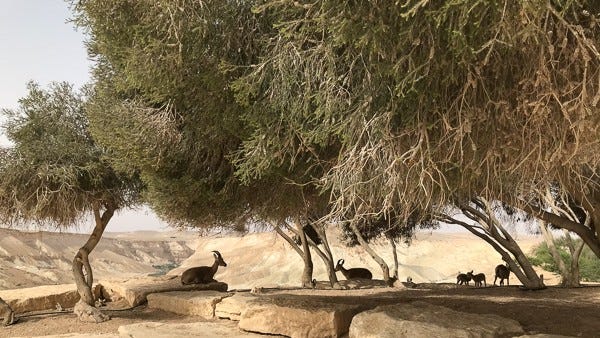My good friend and master coach Hortense le Gentil in her book Aligned, talks about the importance of alignment, how to connect with who you truly are, do the work to become who you want to be and project your aligned self from your inner world onto the outside one. This past weekend, the three great western religions were aligned in prayer, each in their own way, seeking peace. The calendar alignment of the three religions only comes every 33 years. The contextual alignment of the core values is ongoing.
According to my friend Ramma, Ramadan is about deepening the practice of compassion. Through fasting, the experience of the less fortunate becomes more real and present. This offers an opportunity to touch the suffering and feel the humanity of those who have less, to increase compassion for the poor. There is also a call to community, with friends and family gathering and eating. At its foundation, Ramadan affirms a sense of belonging, gratitude, and of humility as a source of strength to grow in the coming year.
I called my colleague Jacquelyn to understand Easter. She was delighted to tell me about the underlying story of the holiday and the diverse practices and rituals. The 40 days leading up to Easter is the practice of Lent, abstaining from food and festivities (depending on individual custom.) The purpose of the practice is to introduce humility, clarity, and compassion into the year. It is a time of reflection, forgiveness, and a time to be together. Practiced in community, Lent presents the opportunity to share the experience of simplicity and charity through almsgiving. At its core, Easter affirms a sense of shared sacrifice, communal forgiveness, and collective rebirth as a source of renewal for the coming year.
I asked Arthur to share his thoughts about Passover. He started by recounting how Jews gather to share the story of Passover each year because “we were once slaves in Egypt.” It requires the retelling of the Exodus story so that each generation remembers the importance of freedom and the value of treating everyone equally. It is a story of overcoming tyranny making modern oppression more relatable. To support the experience of loss, various foods, such as bread, are prohibited. The remembrance of tears with symbolic foods like saltwater and functional foods like horseradish are included. Omitting staples makes eating intentional heightening awareness of loss and deprivation. Passover affirms that the suffering of one is suffering for all and that liberation is possible. The holiday reminds that shared experience is the heart of the human condition.
Our world today is set on focusing on what divides us rather than on the many things we have in common. Yet, some of the beliefs we hold in common are among the most beautiful - notions of sacrifice, good works, hospitality, peace, justice, and love. All practice humility and self-denial through fasting or generous giving and find joy through celebration in community. When put into practice, these are some of the virtues and qualities that make us healthy human beings and leaders.
It is worth remembering the teaching of these great religions: humility, charity, and community. While these three great religious holidays only come together every 33 years, their teaching and practices can inform us daily. As the world becomes more complex, as leaders we see stakeholders seeking simplicity. Everyone wants to be treated fairly, with respect and gratitude for what they offer. In life and leadership, we have an opportunity to set an example in how we treat those we work for, those who work for us, family and friends. All the most outstanding teachers of leadership and the great leaders I have known understand that more unites than divides us. When leaders live these values, the workplace is a better place. Whichever holiday you celebrate, may you be aligned in peace.
Virtual Tea 101 guest Whitney Johnson with Ayse Birsel Wednesday, April 20, 2022, 5:00 PM - 6:00 PM EDT.
Whitney says, "The growth and learning journey comes in three phases: the Launch Point, the Sweet Spot, and Mastery.” To introduce us to her Smart Growth process, Whitney will guide us in the drawing of S Curves. In an S Curve, The Launch Point is at the bottom where learning is slow and takes effort. As you develop new skills and gather experience, things accelerate and you enter The Sweet Spot of the curve. Then, as you get to the peak, the curve flattens and you reach Mastery. That is also when you’re ready to jump off to a new S Curve. Whitney suggests to listen to this episode of her podcast, Why You Should Hire People Into Roles They're Not Qualified For (Yet), to get warmed up. You can also skim the first chapter of her book. RSVP
Subir Chowdury receives the SAE Arnold W. Siegel Humanitarian Award
The SAE International honored Subir Chowdhury with its prestigious SAE Arnold W. Siegel Humanitarian Award for his pioneering work in the field of Quality Engineering and Management, and outstanding works to promote STEM among the nation's youths and global philanthropic works within educational institutions. Through his work on process improvement with Six Sigma and Design for Six Sigma, and his contributions on the promotion of excellence, Chowdhury has improved the quality of life on a global scale. SAE President Dr. Sri Srinath handed over the award on 5th April 2022 evening at the Garden Theater, Detroit, Michigan.
Chowdhury said, "The SAE Arnold W. Siegel Humanitarian Award has been a major highlight of my career. It has brought me a great deal of personal satisfaction knowing that my work on quality and innovation has a human dimension to it, which has impacted the life of young children to high school and college students to professionals. Motivating next generation to STEM disciplines to address the problems of current affairs give me enormous joy. I am deeply honored to receive this recognition from SAE." SAE International Recognizes Top Mobility Professionals at 2022 SAE Awards Ceremony
Great leaders are revealed during times of crisis. The invasion of Ukraine has transformed Zelensky from a Ukrainian president to a world leader. His courage to defend his country and the institution of democracy has changed the world—the Zelensky Effect. It has united European leaders, brought together a divided American congress during an election year, inspired volunteers, and locals have opened their homes to strangers (Ukrainian refugees).
If you want to tap into the discretionary energy of your leadership team and employees, like Zelensky, are you willing to put your badge on the line? Are you ready to ask for help or admit when you are wrong? Are you in the trenches with the team during challenging times? What are you willing to give up so that the team and organization can go up? Zelensky's grit reminds all that courage is contagious, and it changes the trajectory of nations when leaders act boldly. In Forbes
Quote of the week: Don't stumble over something behind you (Seneca)
With Love and Gratitude, Scott












